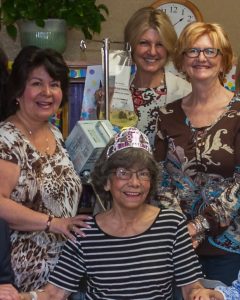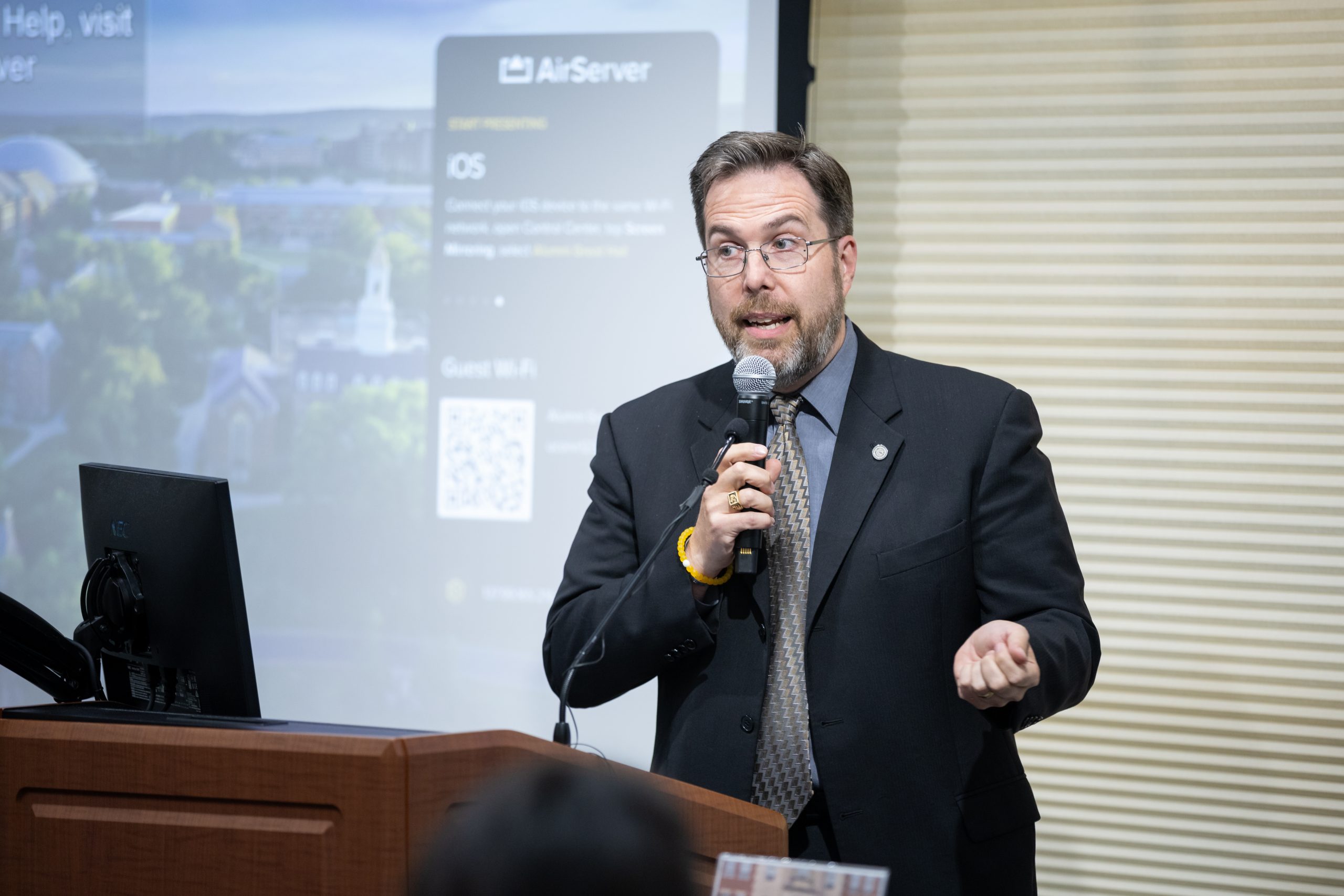
UConn Health is developing a care plan in which it sends a geriatrician to a community nursing home to care for patients following their discharge from the UConn John Dempsey Hospital.
Dr. Dawn Murphy recently joined the UConn Center on Aging as a transitionist. In this role, when a patient moves from the hospital to the Avon Health Center for post-acute care, Murphy becomes that patient’s attending physician of record.
“For elderly patients especially, care transitions have been shown be detrimental to their health for many reasons,” Murphy says. “I’m attempting to work with both the hospital side and the skilled nursing facility side to improve collaboration and communication between team members. These are key elements for a successful transition of care.”
UConn Health is looking to have this type of relationship with other skilled nursing facilities in the community, says Dr. Patrick Coll, professor of family medicine and medicine in the UConn Center on Aging. He has been doing this to some extent already at Seabury in Bloomfield, where he serves as medical director.
“If the physician can come into the hospital where the patient is getting care, meet with the care team, and have access to the full range of electronic records for that patient during their hospital stay and any subsequent visits that they might have for other specialists here in the system, even after discharge, I think there are distinct advantages to that.” Coll says. “Having access to the primary data – the labs, the results of the tests, the medications that the person was on – is helpful. And having contact with the care team in the hospital and getting an idea what the major issues are, I think is invaluable.”
The transitionist concept is part of a larger effort Coll is leading to improve care for elderly patients.
One objective tied to overall patient outcomes is avoiding readmission to the hospital. When a hospital discharges a patient and that patient ends up back in the hospital within 30 days, it can have a negative impact on reimbursement.
“We want them to stay at the skilled nursing facility until they can go home, then keep them at home and have them well enough to remain out of the hospital,” says Murphy, who points out that with today’s trend of shorter inpatient stays, patients discharged from the hospital into a nursing home often require a higher level of post-acute care than in the past.
“The desire to provide continuity of care has encouraged forward thinking at health institutions and hospitals to reach out to nursing homes, develop a closer working relationship, and in our circumstance, to use our own physician, to try to connect that,” Coll says.
Murphy had two postdoctoral training stints at UConn Health before returning as a faculty clinician earlier this year. She completed a residency in internal medicine and a fellowship in geriatrics. In addition to her post-acute care work, she has an outpatient practice in the UConn Health Outpatient Pavilion.
“It provides me with a good contrast to the transitions piece of my position,” Murphy says. “I am able to see many healthy elders from the wider community, as well as some of the transition patients whose trajectory to a skilled nursing facility then to home began when we first met in the hospital.”
More information about the UConn Center on Aging is available at health.uconn.edu/aging.



